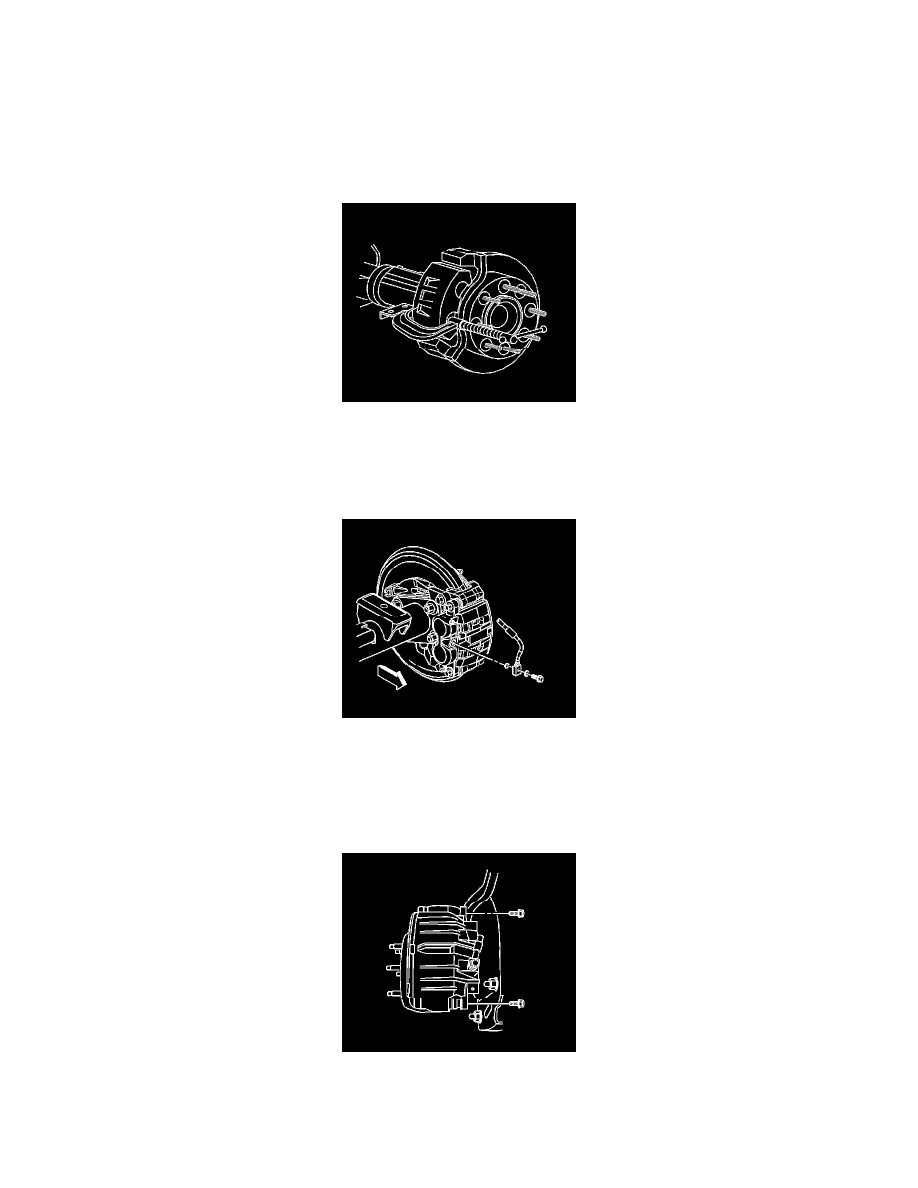Savana 4500 V8-6.6L DSL Turbo (2009)

1. Inspect the fluid level in the brake master cylinder reservoir.
2. If the brake fluid level is midway between the maximum-full point and the minimum allowable level then no brake fluid needs to be removed from
the reservoir before proceeding.
3. If the brake fluid level is higher than midway between the maximum-full point and the minimum allowable level then remove brake fluid to the
midway point before proceeding.
4. Raise and support the vehicle. Refer to Lifting and Jacking the Vehicle (See: Maintenance/Vehicle Lifting/Service and Repair).
5. Remove the tire and wheel assembly. Refer to Tire and Wheel Removal and Installation (See: Maintenance/Wheels and Tires/Service and Repair
).
6. Compress the brake caliper pistons.
*
Install a large C-clamp over the top of the caliper housing and against the back of the outboard pad.
*
Slowly tighten the C-clamp until the pistons are pushed completely into the caliper bores.
*
Remove the C-clamp from the caliper.
7. Clean all dirt and foreign material from the brake hose end.
Note: Install a rubber cap or plug to the exposed brake pipe fitting end to prevent brake fluid loss and contamination.
8. Remove the brake hose to caliper bolt from the brake caliper.
9. Remove and discard the 2 copper brake hose gaskets. These gaskets may be stuck to the brake caliper housing or the brake hose end.
10. Remove the caliper guide pin bolts.
11. Remove the brake caliper from the vehicle.
12. Inspect the caliper assembly. Refer to Brake Caliper Inspection (See: Testing and Inspection).
